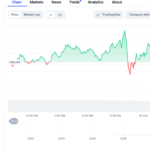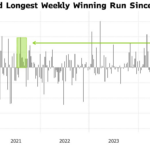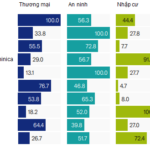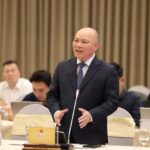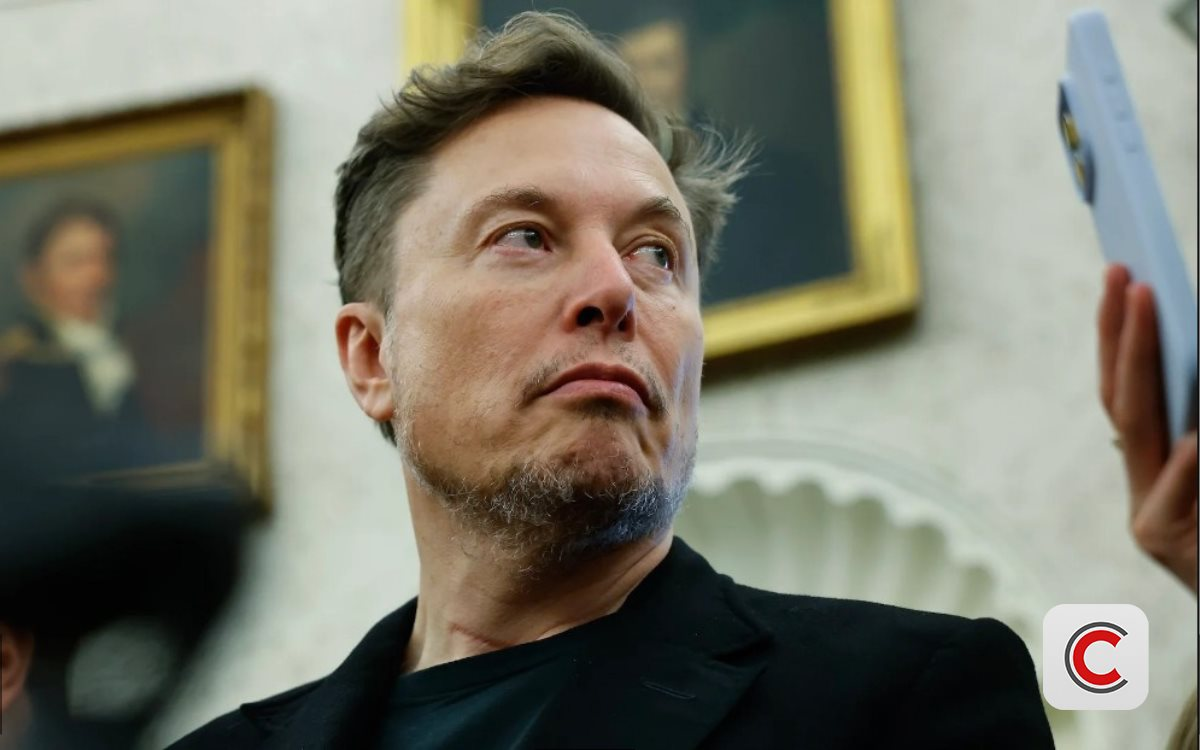The Trump administration will bring about a shift in US global security policy
Economist Intelligence Unit (EIU) assesses the degree of countries’ reliance on a more independent foreign policy approach, marked by the slogan “America First,” through its security dependence index. This index takes into account factors such as dependence on US military aid and the presence of US troops in countries.
Trump is known for his view that America’s defense alliances need to be rebalanced, with partners contributing more. Hence, a country’s defense expenditure (as a percentage of GDP) is considered a crucial factor in this auxiliary index. EIU also scrutinizes foreign sales of military weapons, believing that increased procurement of American arms can mitigate potential security shifts during Trump’s tenure.
Countries Most Affected by Security Policies Under President Trump
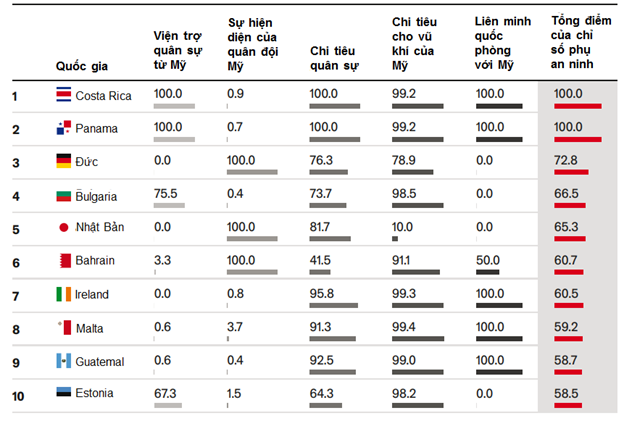
Source: Economist Intelligence Unit (EIU)
(*) Note: Higher scores indicate greater influence.
Some of America’s closest allies are deemed to have the highest security influence.
NATO allies in Eastern and Central Europe, including Bulgaria, Estonia, and Latvia, rank high on the list. This is particularly concerning given their vulnerability should tensions between NATO and Russia escalate into full-blown conflict. Germany, which hosts a significant number of US troops and has a low defense expenditure relative to its GDP, stands at the third position. Meanwhile, although Japan shares some similarities, it is considered less influenced due to its higher expenditure on American weapons.
Several Latin American countries, such as Costa Rica and Panama, which receive military aid from the US but have limited or no defense expenditure, also fall within the top ranks of this classification.
Average Military Expenditure as a Percentage of GDP for 2022-2023 among US Allies
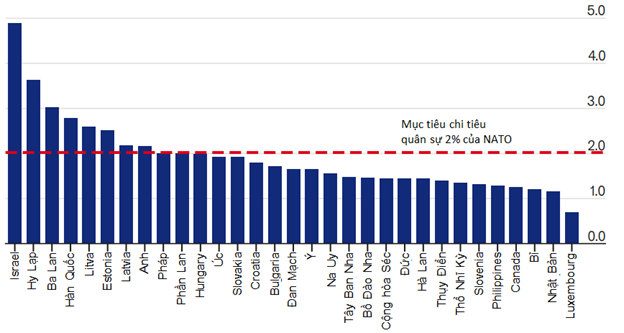
Source: Economist Intelligence Unit (EIU)
Among key US allies, Australia, Finland, Greece, and Poland are deemed the least influenced, attributed to their robust defense spending and procurement of American arms. Oman and Saudi Arabia, significant defense partners of the US in the Middle East, exhibit limited dependence on Trump’s policy shifts.
Non-aligned countries like India and Singapore also showcase relatively low dependence, despite their close military ties and cooperation with the US, as they largely rely on their indigenous defense resources.
Trump Risk Mitigation Strategies
Governments and businesses can contemplate strategies to mitigate risks associated with potential policy shifts under the Trump administration. For instance, the Trump administration may view Germany and Japan’s recent commitments to increase defense spending positively. Precautionary measures can be implemented to minimize trade risks. Governments must tightly regulate to prevent Chinese goods from being disguised as domestically produced items for export to the US. State-directed procurement of American agricultural and energy products could alleviate concerns about trade imbalances. Companies exporting politically sensitive items, such as steel, to the US may consider market diversification to hedge against higher tariff risks.
Fostering close relationships between leaders can also be advantageous. Trump’s first term demonstrated that his decisions could be influenced by his rapport with other leaders. Then-Japanese Prime Minister Abe Shinzo successfully secured trade concessions for his country by skillfully cultivating a relationship with Trump. There is also the possibility that some leaders may find in Trump an ideological ally with whom they can collaborate, potentially benefiting their nations. Leaders such as Hungarian Prime Minister Viktor Orban or Argentine President Javier Milei stand out as “Trumpists” in regions where most other political leaders may hold divergent ideological views.
The prospect of Trump’s return poses risks for some nations but not all.
– 09:00 28/12/2024
The Systemic Risks in the Bitcoin Frenzy
Bitcoin’s price surge of over 40% has captured the attention of the global market, with US President-elect Donald Trump’s endorsement of digital currency and his appointment of like-minded individuals to his cabinet taking center stage.
The Art of Streamlining: Crafting a Lean and Agile Civil Service
On December 7, at the regular Government press conference for November 2024, Mr. Vu Dang Minh, Chief of Staff of the Ministry of Home Affairs, provided information on the direction and handling of policies related to streamlined personnel.

